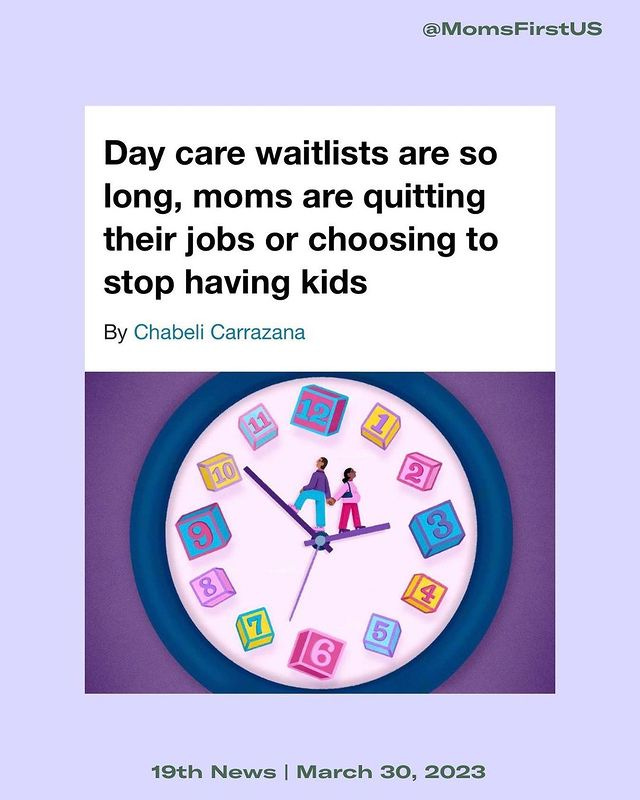The Math of Motherhood: Unpaid Labor Edition
on the unpaid labor of the caretaking parent (as seen on "How to Get Rich")
Welcome to Episode 2 of The Math of Motherhood series. If you missed the first one, read it here. It’s all about pregnancy as the initial expectation for unpaid labor (pun intended).
But sadly, the expectation of unpaid labor continues past gestation and birth.
I saw a clip of the new Netflix show “How to Get Rich” on Instagram this week. If you aren’t familiar with worldshaker, his name is Michael Vaughn, and he is bringing attention to misogynist attitudes and unpaid labor, using his privilege as a white cishet male. Here is a great example of the kind of post he makes:
He recently posted a clip from “How to Get Rich,” episode 1, in which a couple is discussing money. The woman is the sole breadwinner. The man is a stay-at-home dad. Like many stay-at-home parents, he did not intend this to be his path in life. But “more and more we relied on me being home.” His wife is in sales and earns a very good paycheck. But she gatekeeps the money. She is stuck in a very 1950’s mindset of: “I make the money, maybe I will give him an allowance.” It is interesting, of course, because the gender roles are switched.
The husband used to be an electrical engineer. He says that he works way harder at home with two kids than he ever did when he was an engineer. But despite this fact, “she definitely devalues what I do for the house…” Sound familiar?
I watched the entire trajectory of this family throughout the course of the series to see what happens. How would they solve this all-too-familiar conundrum? In the end, the dad decides to get a job. They hire an au pair. And he goes back into the workforce.
Now, I don't begrudge him for making this choice. But I am sad that, instead of teaching us how to value the work that goes into raising children and maintaining a home, this show promulgates the idea that care work DOES NOT HAVE VALUE. So he goes out to find something that does.
During a one-on-one conversation between the host, Ramit Sethi, and the father, the father says: “I want to support my family.”
But here is the problem! Why does “supporting the family” have to mean money? Being there day-to-day for the childcare and household maintenance is the ultimate way to support a family. But because everyone who does this work knows that it is undervalued, we seek to escape the situation so that we can feel good about ourselves. So we can have value in the world.
This is so fucked up.
I wish the show would have taken a different tactic. Instead of leading the dad to get a paying job outside of the home, they could have examined how much value the parent who stays home brings to the table by not requiring the hiring of someone else to do it. Monetary value. Money in the bank!
 Tiktok failed to load.
Tiktok failed to load.Enable 3rd party cookies or use another browser
Recently this issue came up in a post on TikTok. Allison Roozen’s best mom friend died in 2020. The death of her friend made her realize how many people her friend’s husband had to hire in order to replace the unpaid work this stay-at-home mom did. He hired landscapers, two babysitters, and house cleaners, in addition to leaning on grandparents, friends, and a new girlfriend.
In a conversation with Scary Mommy, Roozen says this experience showed her the value of a stay-at-home parent. She even encourages stay-at-home parents to have a life insurance policy so that your spouse could afford to pay for all the help they would need upon your passing. To replace you.
Laura Danger (thatdarnchat) has explored this concept in response to a comment from a man who asked why, if he makes 150k per year, he should still do 50% of the household work. Now first, I’m going to point people to the post below, where Zachary Watson stiches a video of him nodding along to Renee Reina (host of The Mom Room) making very good points.
Danger points out that a stay-at-home parent is doing tasks that you would have to pay someone else to do if they weren’t doing them. She breaks it down:
$24,000 a year for 8 hours of daycare per day
$25,000-35,000 for a housekeeper
$32,000-130,000 for a personal chef
$50,000 for a personal assistant
$27,000-$82,000 for a chauffeur
$35,000 for a personal shopper
So even using the lower estimates, a stay-at-home parent is saving the family $193,000.
But there’s so much else. What about party planning? Travel agent? What about being a partial therapist as your kid unloads all that went wrong at school? What about tutoring/homework help? What about what you would pay a professional organizer to keep closets clean and drawers from overflowing with outgrown clothes?
Unpaid labor is incredibly valuable, we have just decided as a society not to value it. There is a severe shortage of childcare options in this country post-pandemic. For many people, they cannot find a place to send their children, so one parent has to stay home. In fact, there are 60,000 fewer daycare workers this year compared with in February 2020. If you are lucky enough to secure a spot, the costs can feel astronomical. Reshma Saujani had a great thread on this on Instagram asking people what they paid for childcare each month. Here are a few examples:
$1900/month for one kid in NYC
$6500/month for preschool and nanny in Boston
$2800/month for an infant in Chicago
All of this proves how valuable childcare is! And yet, when it is a parent performing the tasks, somehow it loses its value.
I remember when my kids were in preschool. It was only for three mornings a week, which I eventually increased to three full days and one morning a week by the time my second child was enrolled. (Of course the “full day” option ended at 3pm). It was also a co-op which meant I had to work three Saturday work days a year and be on-call seven mornings in case the regular parent volunteer was sick or couldn’t make it. Then, my final year at the school, I was roped into becoming the board chair. This meant that tuition was essentially free. But man did I “work” to get that balance to $0. Two weeks before the school year started the director quit and I had to install an interim director and be a part of a hiring committee, all unforeseen extra responsibilities.
This saved my family thousands of dollars. But it was not money that went into the bank. It was money that was never taken out.
That is how we need to think about at home caregiving. It HAS monetary value. But in our society, unless you are “bringing home a paycheck,” you aren’t working. This is false.
Angela Garbes explores this idea in Essential Labor. Written in the midst of the pandemic, the book is a timely interrogation of how “mothering is some of the only truly essential work humans do. Without people to care for our children, we are lost.” And it has monetary value. We’ve all heard the numbers. “According to Oxfam, if women around the world made minimum wage for all the unpaid hours of care work they performed in 2019, they would have earned $10.9 trillion. In America alone, they would have earned $1.5 trillion.” But Garbes also goes on to say that “placing reproductive labor outside the capitalist sphere is what upholds the entire system.”
“When we insist on the monetary value of mothering, we do nothing less than redefine work.”—Angela Garbes, Essential Labor
There are websites like Bill the Patriarchy and the Invisible Labor Calculator that can help you imagine monetizing the hours that you are doing unpaid labor. Even with both of my kids in full-time school and only having partial custody due to my recent separation, according to their estimates, I would earn $74,000 this year. (A white man would make $15,000 more, of course).
I wish that there had been a female producer on “How to Get Rich” who might have paused the conversation between those two men and asked the host to interrogate the father’s misguided assumption that in order to support his family, he had to bring in a paycheck. “How to Get Rich” missed an incredible opportunity to challenge the narrative. To step in and tell that dad: You ARE supporting your family, right now! To tell the wife: Listen, this is how much money your husband is saving you each year by staying home with these kids. Now can you see how much value he is bringing to the partnership? Because childcare and home maintenance have long been considered women’s work, it isn’t considered work. It is supposed to be an expression of love or care, instead of the manual labor that it is.
We must continue to fight against this stigma - that this work is easy, or not work, or that stay-at-home parents are sitting at home all day while their kids are in school watching Netflix. They are likely cleaning, running errands, grocery shopping, prepping for dinner, signing permissions slips, folding laundry, calling insurance, scheduling babysitters, signing up for after school activities or summer camps, making plans for the upcoming 3-day weekend, buying birthday presents, researching vacations, purchasing plane tickets. And on and on and on.
This is what it takes to run a family. It is work. It has value. Let’s stop pretending that it doesn’t count.
FURTHER READING
Women’s Work: A Personal Reckoning with Labor, Motherhood, and Privilege, by Megan K. Stack.
Essential Labor: Mothering as Social Change, by Angela Garbes.
Is It Time to Start Paying Stay at Home Parents? Juliana Caplan. Insider.
JOIN THE CONVERSATION - SOCIALS TO FOLLOW:
Laura Danger aka thatdarnchat
Michael Vaughn aka worldshaker
Renee Reina aka themomroom
Zachary Watson aka realzachthinkshare
Eve Rodsky and fairplaylife
Erin Spahr aka feminist.mom.therapist
Libby Ward aka diaryofanhonestmom












Oh my gollllyyyyy how much I love this. We are speaking the same language. Bravo. Brava. Keep going, please. I have a lengthy piece on the math of the hours of the week and why it's so important to have support and help during those 168 hours -- please enjoy, and let me know if you want to talk about this on an upcoming episode if it fits with what you're doing!
https://startupparent.substack.com/p/the-parenting-math-that-doesnt-add
I’m a “stay at home” mum after finding childcare unaffordable on my current salary for 2 children.
I completely feel this that the role of the stay at home parent isn’t valued. In the UK you get more childcare support financially when a child is 3 IF you are working. I get 2 full days for my 3 year old and we pay full price for my 1 yr old giving me 1 day i can work. This means as a stay at home mum I am having to work alongside supporting my family full time in a flexible way- I have started my own graphic design business. I can only work one day a week or at weekends and evenings so in a way my work as a parent feels undervalued because I still need to cover the cost of childcare through working evenings and weekends as well as being up every few hours in the night with the youngest. I am completely spent and yet I don’t feel like I am doing enough because I am not making much money. It is so tough after years of being financially independent to rely on my partner and to get out of the mindset that “work” is only work if it earns money. I don’t think about what i’m earning through not sending them to childcare and thanks to your piece that is something I will certainly have on my mind now. Thanks for offering a different perspective.